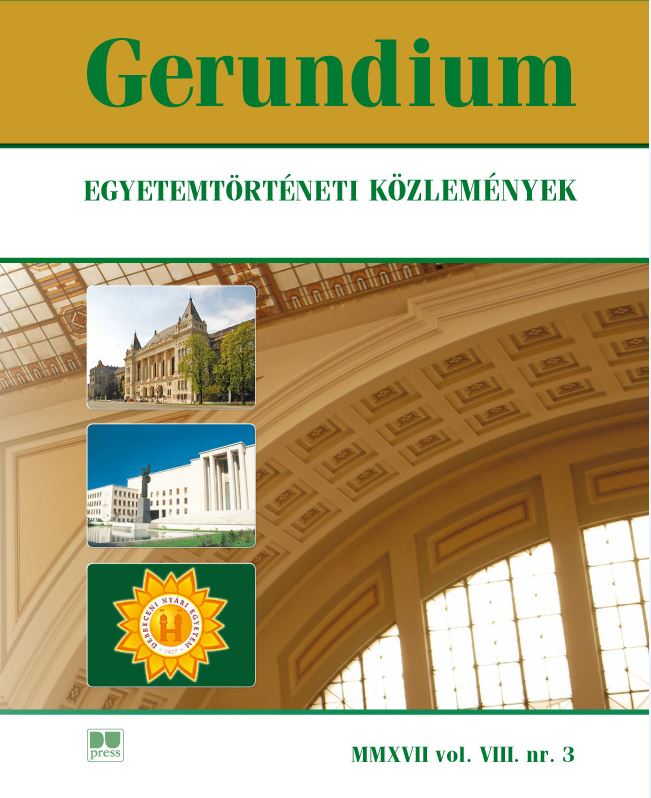A Magyar nyelv és kultúra oktatása finnországi egyetemeken
Szerző
Megtekintés
Hogyan hivatkozzuk
Absztrakt
Teaching Hungarian and Hungarian Culture at the Universities of Finland. Hungarian language instruction in Finland – similarly to the teaching of Finnish in Hungary – has a tradition going back 150 years. The languages’ reciprocal teaching arose from an idea, according to which Finnish and Hungarian are related languages. The first professor of the Finnish language and literature started to work in 1851 at the University of Helsinki. The teaching of Hungarian has been in the repertoire almost from the beginning. Speakers of Finnish did this job until the position of the Hungarian lector was established in 1925. In the early 1980s a Hungarian visiting professor’s status was set up, and in 1985 they started to teach Hungarian as a minor, from 1990 as
a major and from 1999 as a specialization part of the Finno-Ugric Studies. Since 2008, when the Bologna structure was introduced, the teaching of the language has continued on two levels: bachelor and master’s.
Initially at the University of Turku (founded in 1920) Finnish-speaker external lecturers have taught Hungarian. In 1966 a resident native speaker began work at the university. At first Hungarian language was part of the Finno-Ugric Studies. This situation changed in 1986 when an independent Hungarian language and culture major was established. Initially this scheme worked only on the basic level, in 2002 this structure was enlarged to encompass the intermediate level too.
At the University of Jyväskylä the training program has developed in a different way, not as the part of the Finno-Ugric Studies. From the 1930s Hungarian linguistics has been taught in summer school courses. The regular teaching began in 1968. The status of the lector was established in 1975. 1989 was a turning point for the Hungarian teaching in Jyväskylä, because in this year the hungarology program was jointly created by the cooperation of six university departments. This program worked for two decades. Currently the teaching on the undergraduate level has been discontinued, but the Hungarology PhD School is prospering. The educational materials for the Finns are at the forefront of the Hungarian language textbooks for foreigners. Since the 1960s most of the lectors who have worked in Finland made not just Hungarian but Finnish textbooks as well, including dictionaries and other educational materials.







